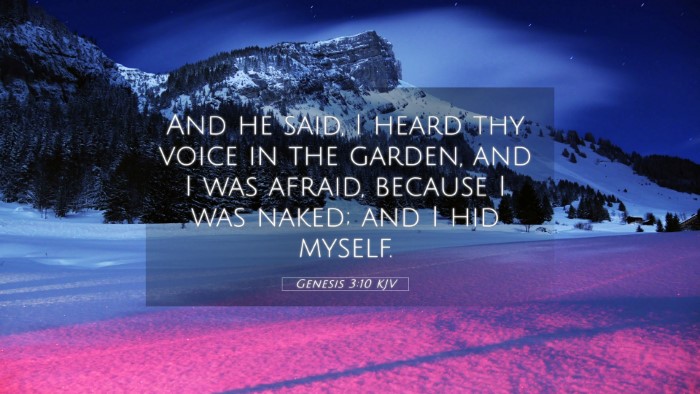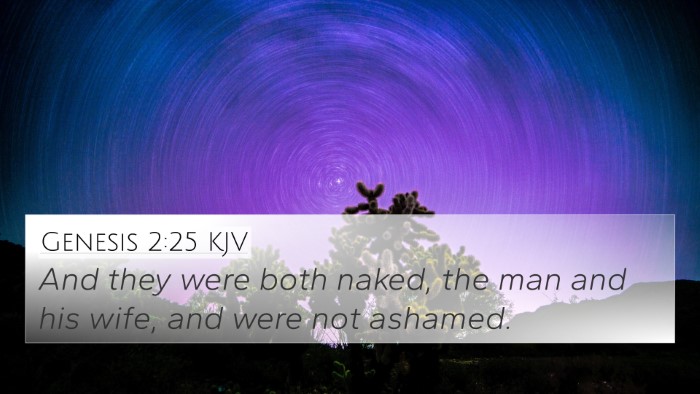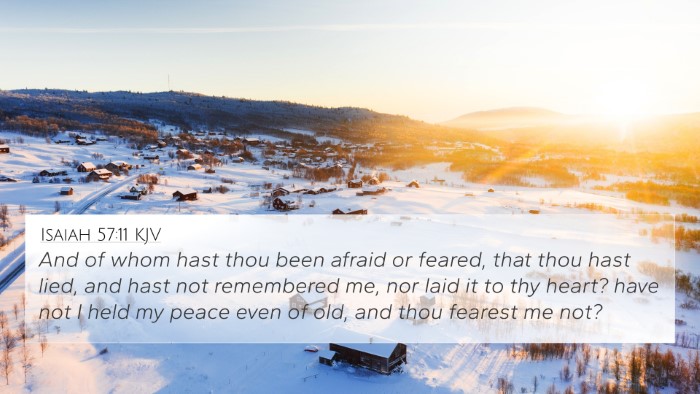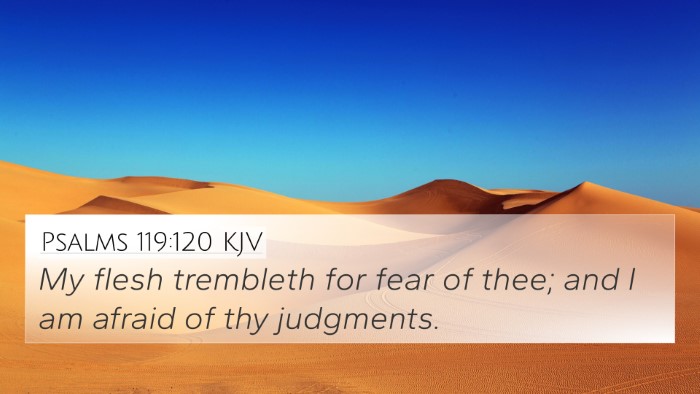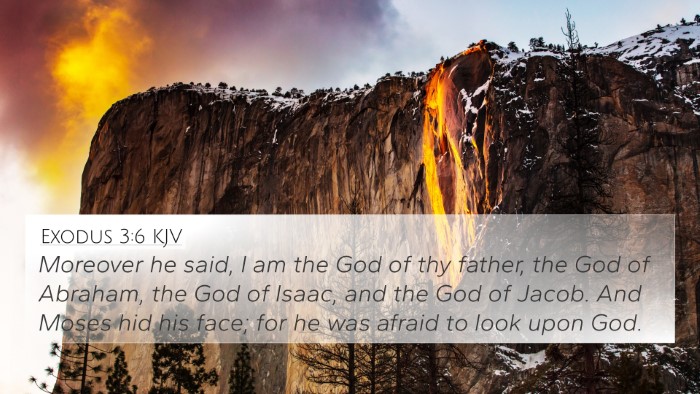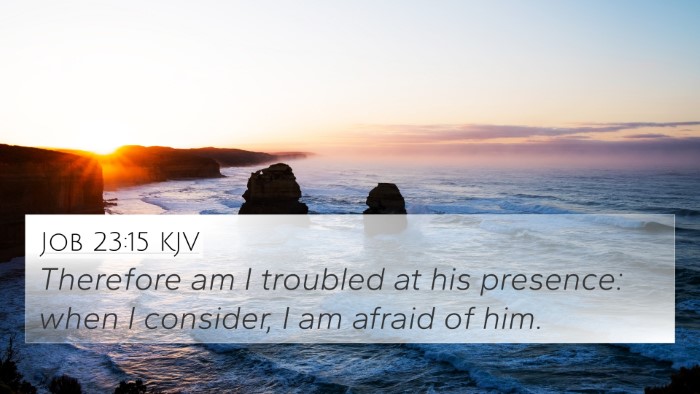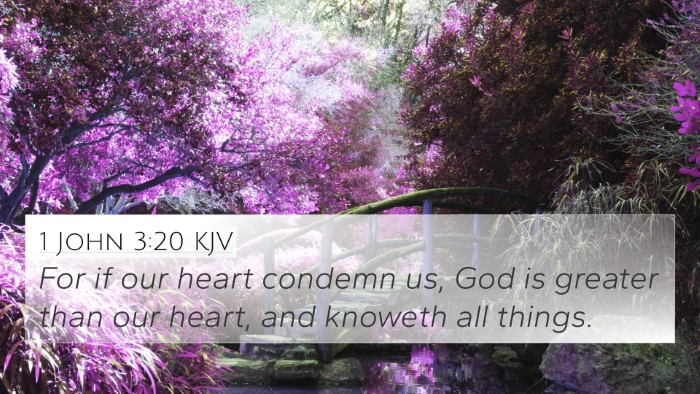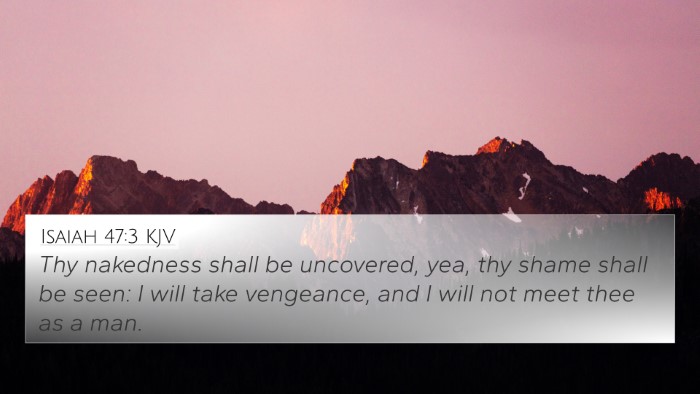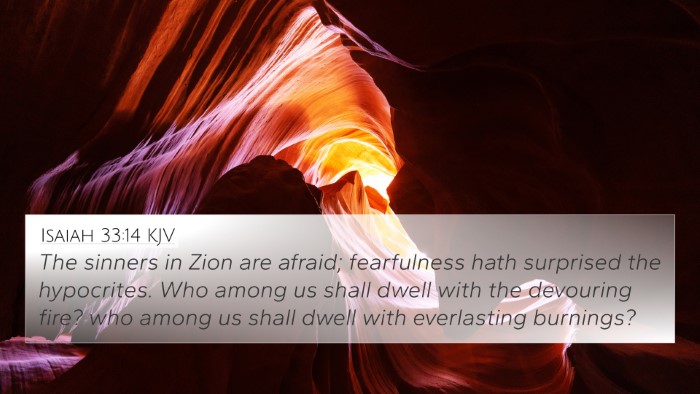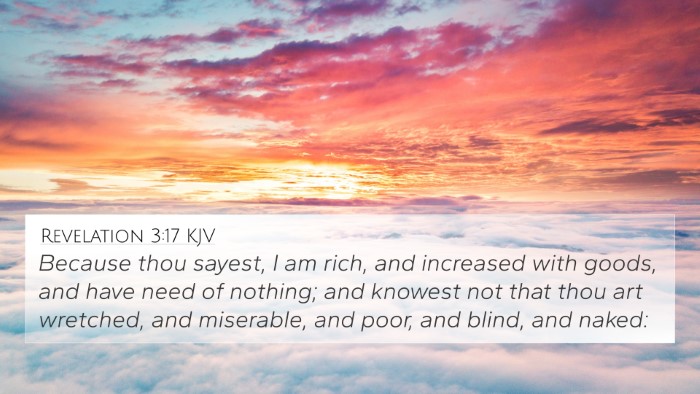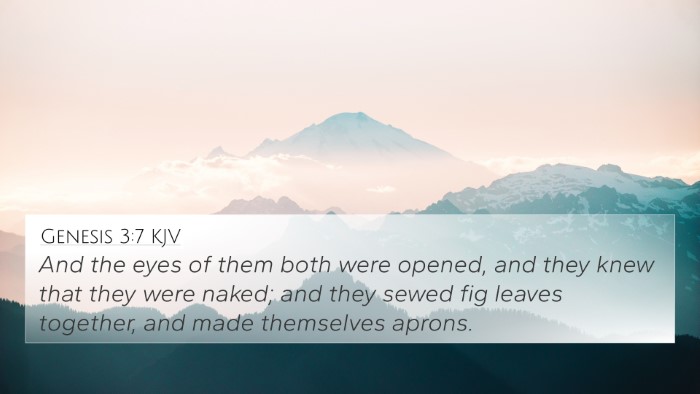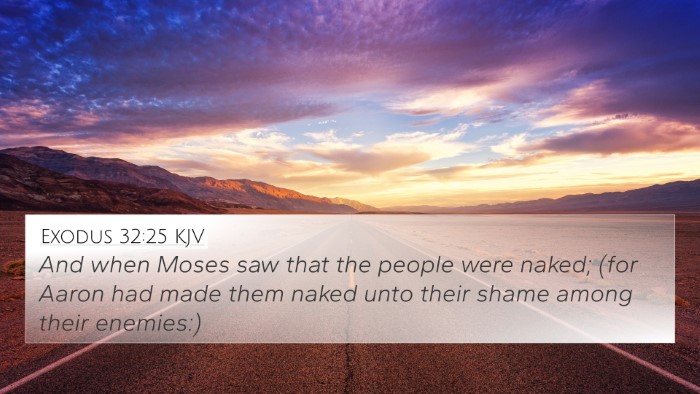Genesis 3:10 - Summary of Meaning
In Genesis 3:10, we encounter a pivotal moment following the fall of humanity. The verse states, "And he said, I heard thy voice in the garden, and I was afraid, because I was naked; and I hid myself." This statement by Adam reveals profound themes of fear, shame, and separation from God. The insights from multiple public domain commentaries provide a richer understanding of this verse.
Context of Genesis 3:10
The context of Genesis 3 is crucial for interpreting verse 10. After Adam and Eve disobeyed God by eating from the forbidden tree, their eyes were opened, and they became aware of their nakedness. This act of disobedience led to a breakdown in their relationship with God, marked by feelings of fear and shame.
Commentary Insights
-
Matthew Henry's Commentary:
Henry emphasizes that Adam's hiding was an acknowledgment of guilt. His fear stemmed not only from physical nakedness but from moral failure. Adam's response suggests a shift from trust and openness to fear and alienation, highlighting the disastrous effects of sin.
-
Albert Barnes' Commentary:
Barnes notes the deepening relationship strain between humanity and God. Adam's declaration reveals how sin creates barriers, leading believers to hide from God rather than seek Him. This moment foreshadows ongoing human struggles with guilt and the need for redemption.
-
Adam Clarke's Commentary:
Clarke explores the psychological aspects of Adam's response. He points out that fear is a natural reaction to guilt, and Adam's nakedness represents both physical and spiritual exposure. Clarke highlights that this fear persists in humanity's relationship with God throughout history.
Thematic Connections
The themes of guilt, shame, and the need for divine reconciliation resonate throughout Scripture, making connections between Genesis 3:10 and other Bible verses essential for a fuller understanding.
-
Romans 3:23: "For all have sinned, and come short of the glory of God." This verse reflects the universality of sin that leads to the same fear and hiding found in Adam.
-
Psalm 32:5: "I acknowledged my sin unto thee, and mine iniquity have I not hid." This verse contrasts Adam's reaction with the importance of confession and seeking God.
-
Isaiah 59:2: "But your iniquities have separated between you and your God." This verse emphasizes the separation that sin creates, echoing Adam's fear.
-
John 3:20: "For every one that doeth evil hateth the light, neither cometh to the light, lest his deeds should be reproved." This reflects the tendency to hide from God's truth, resonating with Adam's actions in the garden.
-
1 John 1:9: "If we confess our sins, he is faithful and just to forgive us our sins." This offers hope for overcoming the fear and shame present in Genesis 3:10 through confession and repentance.
-
Hebrews 4:13: "Neither is there any creature that is not manifest in his sight: but all things are naked and opened unto the eyes of him with whom we have to do." This verse highlights that God sees all, yet Adam attempted to hide, showing the futility of escaping God's gaze.
-
Genesis 3:21: "Unto Adam also and to his wife did the Lord God make coats of skins, and clothed them." This shows God's redemptive action in response to human shame—a preparation for grace.
-
Luke 15:17-20: The Prodigal Son's return illustrates the journey from fear to redemption, contrasting Adam's fear of God with the son’s prepared heart to seek forgiveness.
-
Revelation 21:4: "And God shall wipe away all tears from their eyes; and there shall be no more death, neither sorrow, nor crying, neither shall there be any more pain." This speaks to the restoration God promises, overcoming the barriers of fear introduced in Genesis 3:10.
-
2 Corinthians 5:17: "Therefore if any man be in Christ, he is a new creature: old things are passed away; behold, all things are become new." This reflects the transformational power of embracing God rather than hiding from Him.
Understanding Fear and Shame in Theology
The psychological elements of fear and shame introduced in Genesis 3:10 have theological significance. Historically, they illustrate humanity's fallen state, emphasizing the need for redemption through Jesus Christ. The writers underscore that these emotions are part of human experience due to sin, necessitating a savior to restore the broken relationship with God.
Cross-Referencing Related Verses
When studying Genesis 3:10, employing a Bible cross-reference guide allows for a more enriched understanding of related themes. Tools for Bible cross-referencing can aid in identifying these connections effectively, making it easier to dive deeper into the text's meaning.
Practical Application of Genesis 3:10
Modern believers can learn from Adam's experience in Genesis 3:10. Recognizing our tendency to hide from God due to shame can lead us to a place of honesty and vulnerability before Him, fostering deeper intimacy rather than separation. Understanding our own fear through the lens of Scripture helps us to draw closer to God rather than retreating into isolation.
Conclusion
Genesis 3:10 serves as a reminder of the consequences of sin and the emotional turmoil it brings into our relationship with God. Yet, it also points towards hope and redemption. By acknowledging our fears and shame and bringing them to God, we can experience His grace and restoration.

